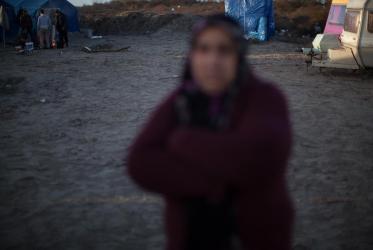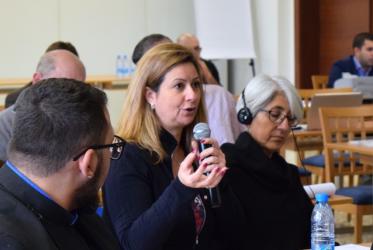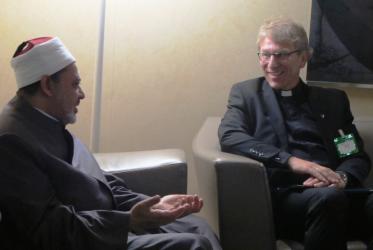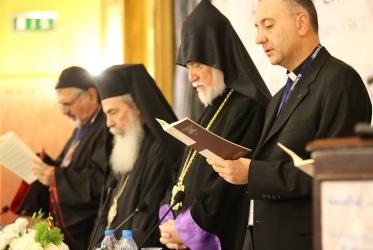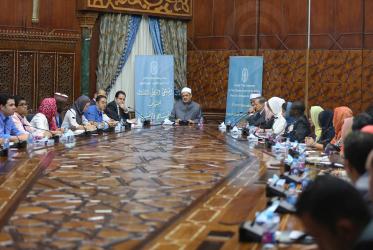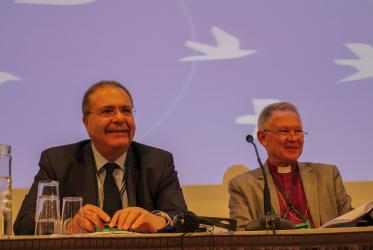Displaying 121 - 140 of 219
WCC general secretary mourns lost lives, calls for end to violence
11 December 2016
WCC urges immediate focus on safety, security in Aleppo
05 December 2016
Churches’ diaconal action in the Middle East analyzed
01 December 2016
In Syria and Iraq, minorities must come out of the darkness
28 November 2016
Dialogue flourishes between WCC, Muslim Council of Elders
30 September 2016
WCC set to observe World Week for Peace in Palestine and Israel
16 September 2016
Middle East Council of Churches convenes
08 September 2016
Seminar will address youth engagement, religion and violence
19 August 2016
Owe Boersma will strive for equilibrium as EAPPI coordinator
18 August 2016
Facilitating peace with passion
26 July 2016
‘Unprecedented times of hopelessness’ in Holy Land
11 July 2016
Is there hope for the Middle East?
25 June 2016
Peace, health and education are Gaza's future
24 May 2016

